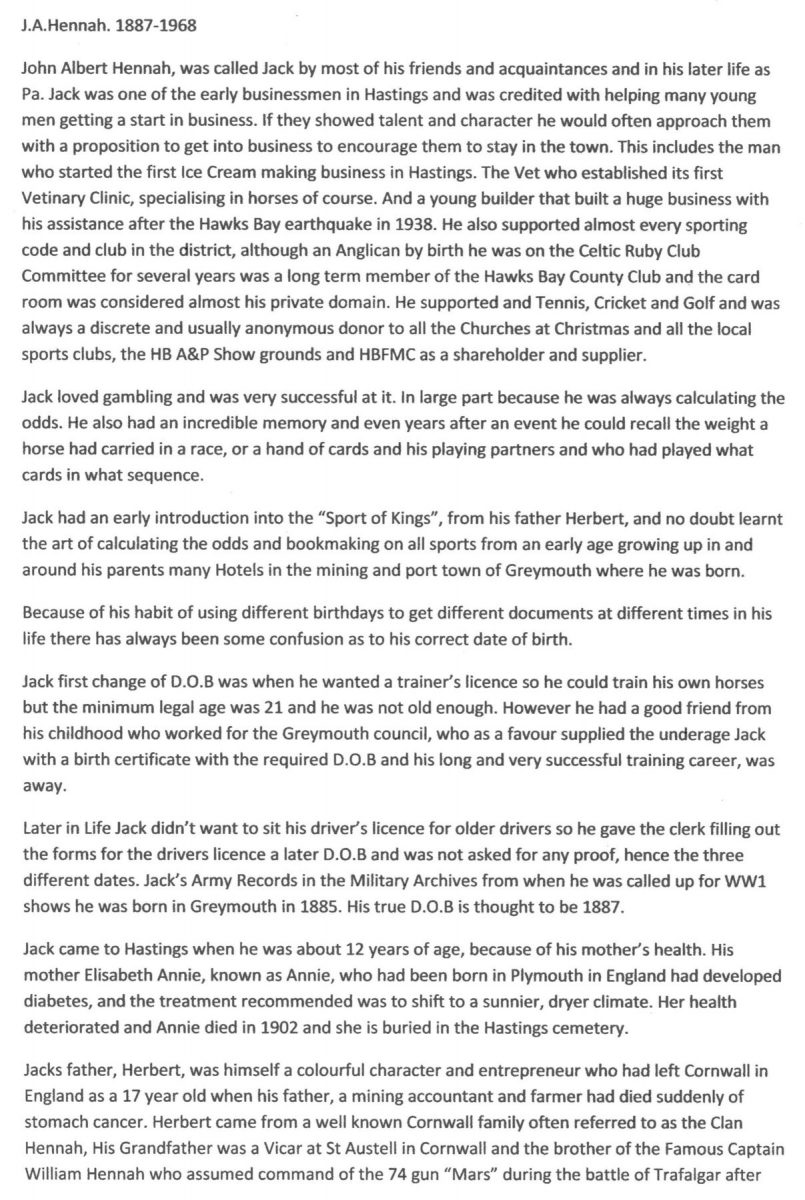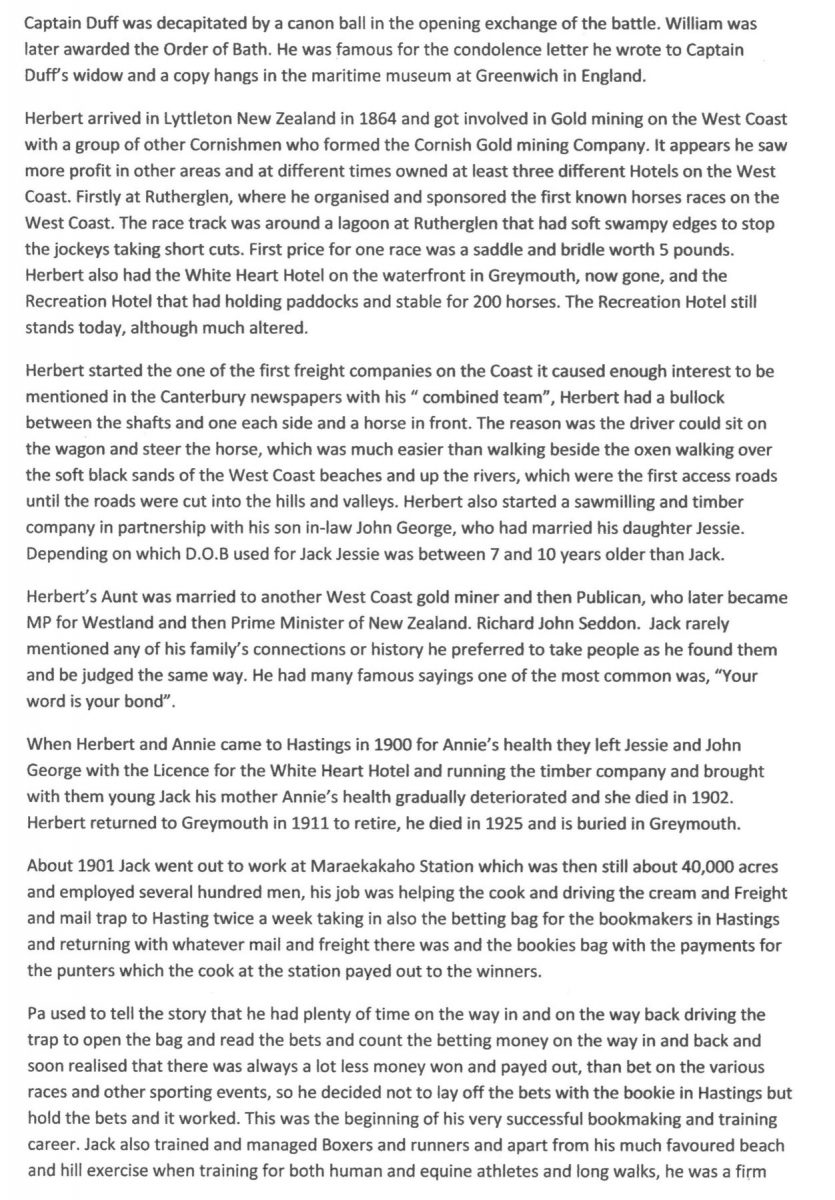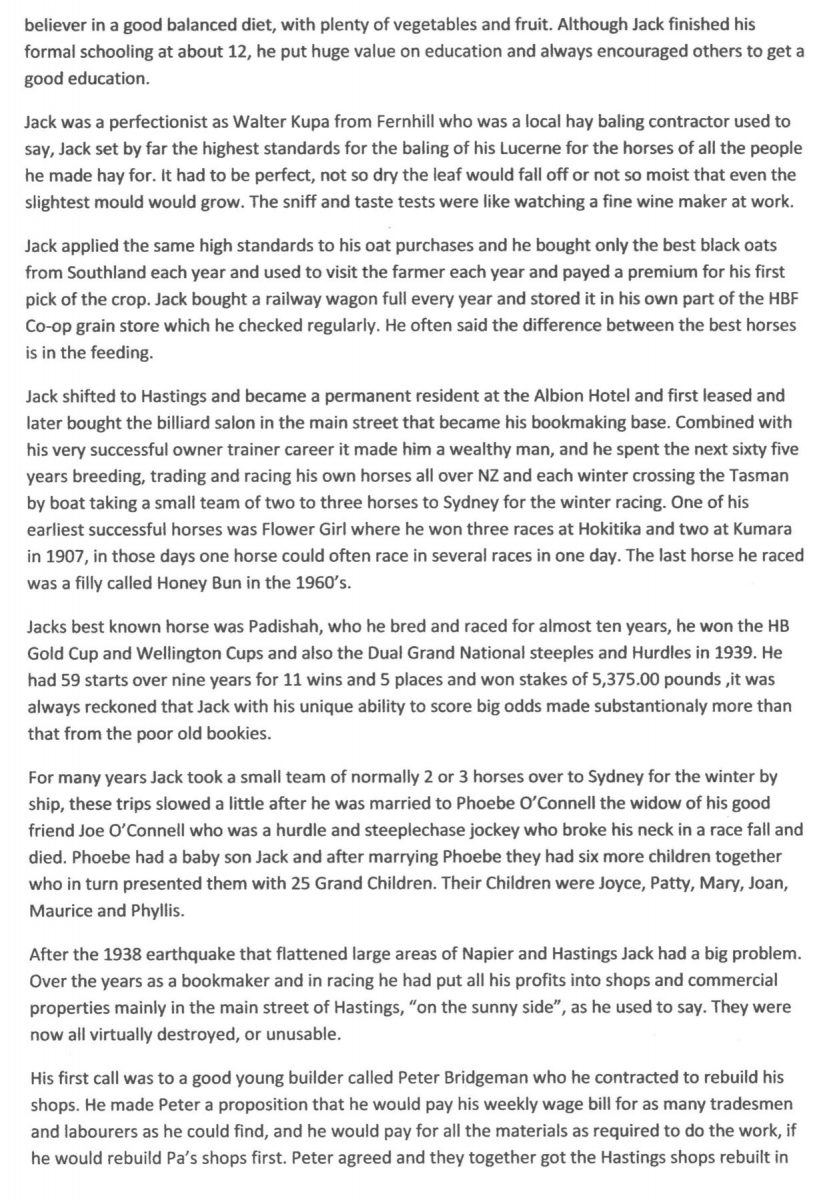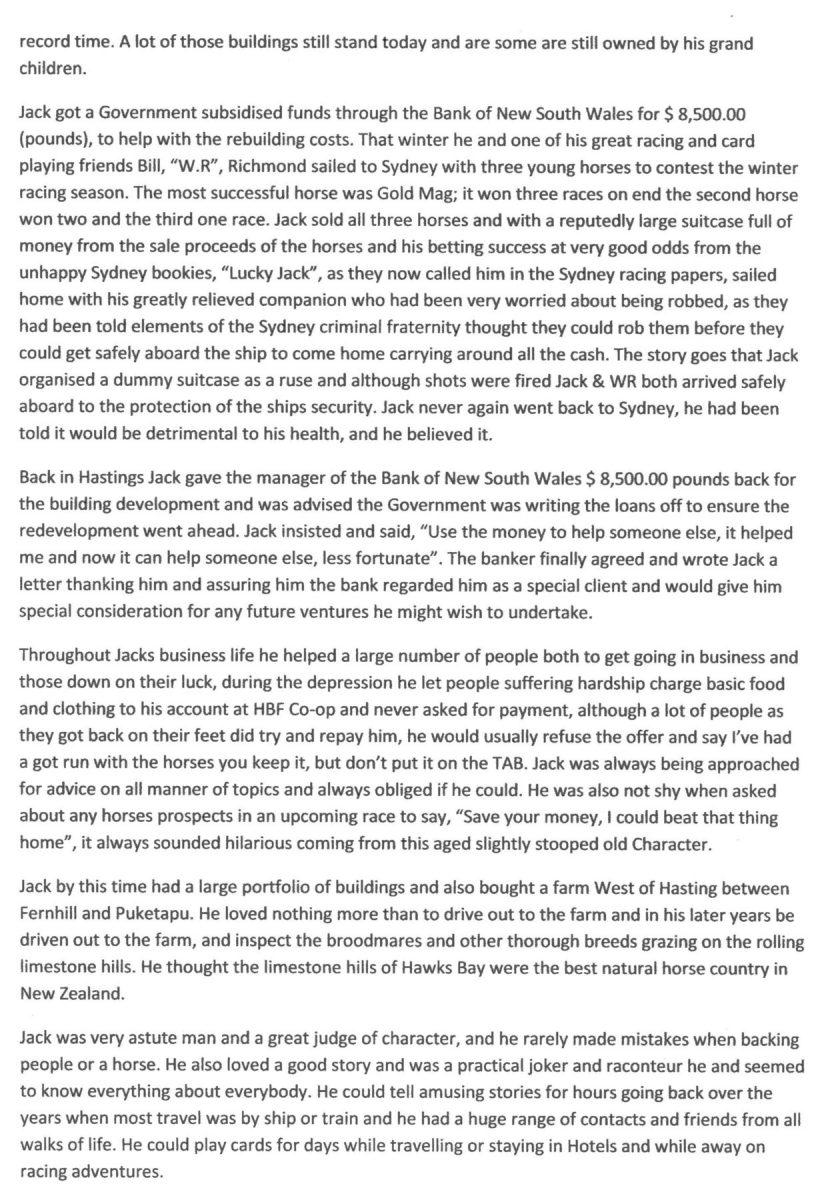believer in a good balanced diet, with plenty of vegetables and fruit. Although Jack finished his formal schooling at about 12, he put huge value on education and always encouraged others to get a good education.
Jack was a perfectionist as Walter Kupa from Fernhill who was a local hay baling contractor used to say, Jack set by far the highest standards for the baling of his Lucerne for the horses of all the people he made hay for. It had to be perfect, not so dry the leaf would fall off or not so moist that even the slightest mould would grow. The sniff and taste tests were like watching a fine wine maker at work.
Jack applied the same high standards to his oat purchases and he bought only the best black oats from Southland each year and used to visit the farmer each year and payed [paid] a premium for his first pick of the crop. Jack bought a railway wagon full every year and stored it in his own part of the HBF Co-op grain store which he checked regularly. He often said the difference between the best horses is in the feeding.
Jack shifted to Hastings and became a permanent resident at the Albion [Albert?] Hotel and first leased and later bought the billiard salon in the main street that became his bookmaking base. Combined with his very successful owner trainer career it made him a wealthy man, and he spent the next sixty five years breeding, trading and racing his own horses all over NZ and each winter crossing the Tasman by boat taking a small team of two to three horses to Sydney for the winter racing. One of his earliest successful horses was Flower Girl where he won three races at Hokitika and two at Kumara in 1907, in those days one horse could often race in several races in one day. The last horse he raced was a filly called Honey Bun in the 1960’s.
Jacks [Jack’s] best known horse was Padishah, who he bred and raced for almost ten years, he won the HB Gold Cup and Wellington Cups and also the Dual Grand National steeples [Steeples] and Hurdles in 1939. He had 59 starts over nine years for 11 wins and 5 places and won stakes of [£]5,375.00 pounds, it was always reckoned that Jack with his unique ability to score big odds made substantionaly [substantially] more than that from the poor old bookies.
For many years Jack took a small team of normally 2 or 3 horses over to Sydney for the winter by ship, these trips slowed a little after he was married to Phoebe O’Connell the widow of his good friend Joe O’Connell who was a hurdle and steeplechase jockey who broke his neck in a race fall and died. Phoebe had a baby son Jack and after marrying Phoebe they had six more children together who in turn presented them with 25 Grand Children [grandchildren]. Their Children [children] were Joyce, Patty, Mary [Marie], Joan, Maurice and Phyllis.
After the 1938 [1931] earthquake that flattened large areas of Napier and Hastings Jack had a big problem. Over the years as a bookmaker and in racing he had put all his profits into shops and commercial properties mainly in the main street of Hastings, “on the sunny side”, as he used to say. They were now all virtually destroyed, or unusable.
His first call was to a good young builder called Peter Bridgeman who he contracted to rebuild his shops. He made Peter a proposition that he would pay his weekly wage bill for as many tradesmen and labourers as he could find, and he would pay for all the materials as required to do the work, if he would rebuild Pa’s shops first. Peter agreed and they together got the Hastings shops rebuilt in















Do you know something about this record?
Please note we cannot verify the accuracy of any information posted by the community.